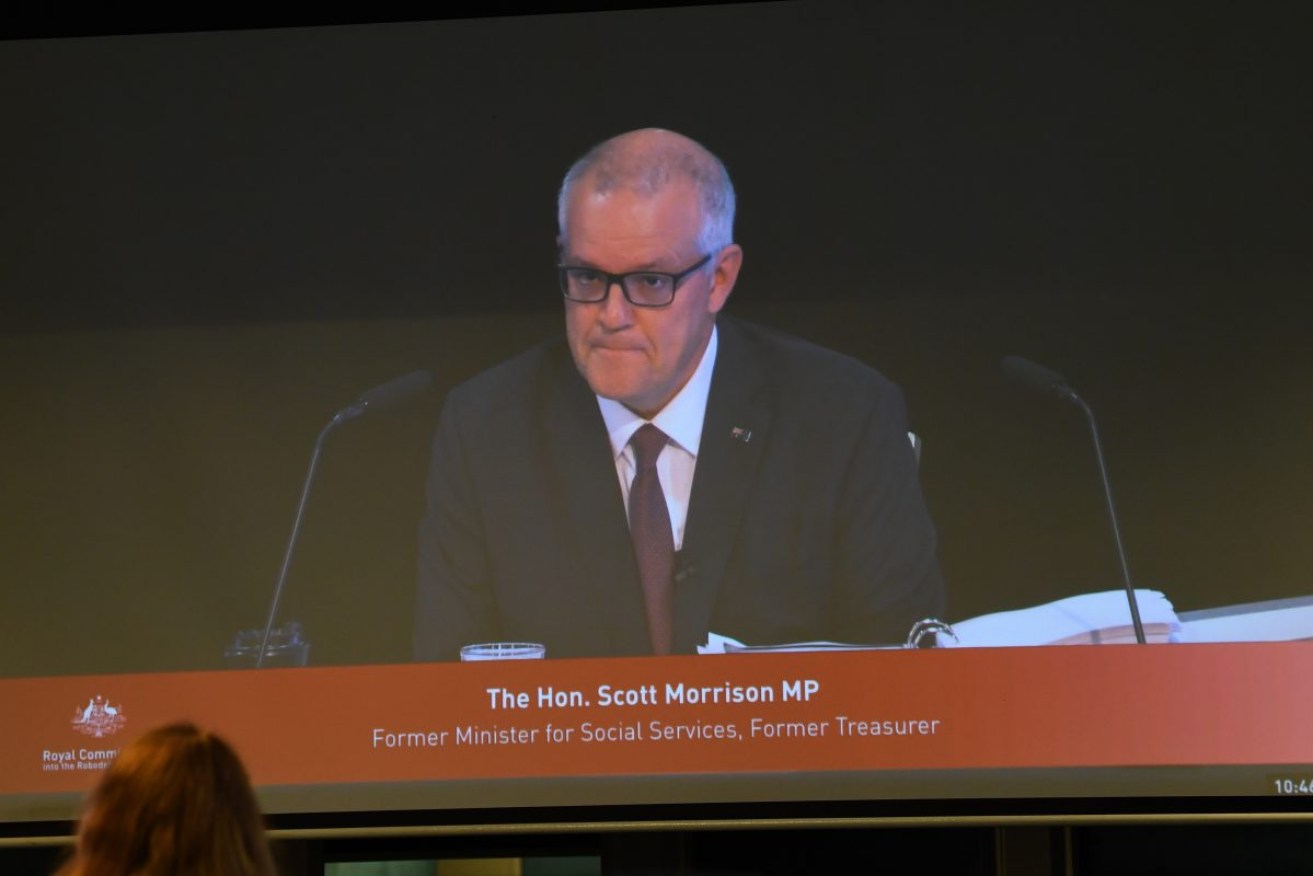Robodebt victim made to ‘feel like a criminal’
A robodebt victim has told a royal commission that the illegal program made him feel like a criminal and still affects his mental health five years after wrongly claimed debts were raised.

Former social services minister and prime minister Scott Morrison gives evidence at the robodebt royal commission. Photo: AAP Image/Jono Searle
Matthew Thompson was incorrectly told he owed $11,000 for accessing Newstart and the sickness allowance between 2012 and 2015.
Thompson worked casually as a photographer for the Hobart Mercury newspaper and had fluctuating shifts and income.
Recently diagnosed with generalised anxiety disorder, Thompson told the commission he had struggled with his mental health throughout his life and at times it impacted his ability to work.
He described feeling “shocked” at receiving two Centrelink letters in 2018 raising the debt and had to find his pay slips from the period, which took a lot of time.
“I’ve been on and off Centrelink since I was 20. It was easier back then, it was face-to-face and there was more humanity,” he told the commission.
“These days I can be on the phone for hours (and) sometimes they hang up on you … dealing with Centrelink is a full time job.”
Thompson later had his Newstart debt reduced and eventually wiped.
In August 2020 he received a letter saying Centrelink no longer calculated debts in the same way and it had been reduced to zero.
“There was a bit of relief but the damage had already been done,” Thompson said.
“The way they write ‘we no longer do this’, wouldn’t it be nice if they said ‘sorry, we don’t do this anymore’.”
Thompson followed the royal commission closely and felt compelled to give evidence after he watched former prime minister Scott Morrison being questioned.
“After Scott Morrison’s appearance – I was watching the whole thing – that night I couldn’t sleep. I was furious and wound up,” he said.
“The robodebt scheme has had a lasting effect on me as it had on many others. It made my mental health worse. It made me feel like a criminal and a cheat.”
He said the way politicians talked about people who needed support made him feel “sad and sick”.
“(Coalition ministers) were the architects of the scheme which caused so much harm … and they continue to blame others,” he said.
“It seems to me that the powerful people are always able to take advantage of vulnerable people and the gap between rich and poor increases.
“No matter how many royal commissions we have it always seems to be the case. I hope this commission changes that.”
On Tuesday, the commission heard that when a former Human Services Department secretary told former minister Stuart Robert that she had been advised the robodebt scheme was unlawful and the government should admit its error, apologise and inform the public of steps to correct it, he said: “We absolutely will not be doing that. We will double down.”
Meanwhile, the former chief legal officer for the department admitted she “should have done more” to follow up on questions about its legality.
Annette Musolino, who now works as chief operating officer at Services Australia, gave evidence for a second time.
On Tuesday, former departmental secretary Renee Leon told the commission Musolino did not communicate that she was aware of legal advice from the Australian Government Solicitor that questioned the legality of income averaging.
She told the commission Musolino assured her the department was confident about its legality.
Yet Musolino said she did not recall seeing the draft legal advice to the contrary in January 2017, despite it being sent to the chief counsel inbox.
She said when criticisms of the scheme were raised in July 2017 by Peter Hanks, an expert in constitutional and administration law, she tasked other members of her team to look into them.
“I had not sighted any external legal advices about income averaging. I believed – rightly or wrongly – that the cabinet decision regarding the scheme had been supported by legal advice,” she said.
“In hindsight, I should have done more, I should have been more alert … I thought I had controls in place that if issues or advice needed to be brought forward, it would be.”
-with AAP




